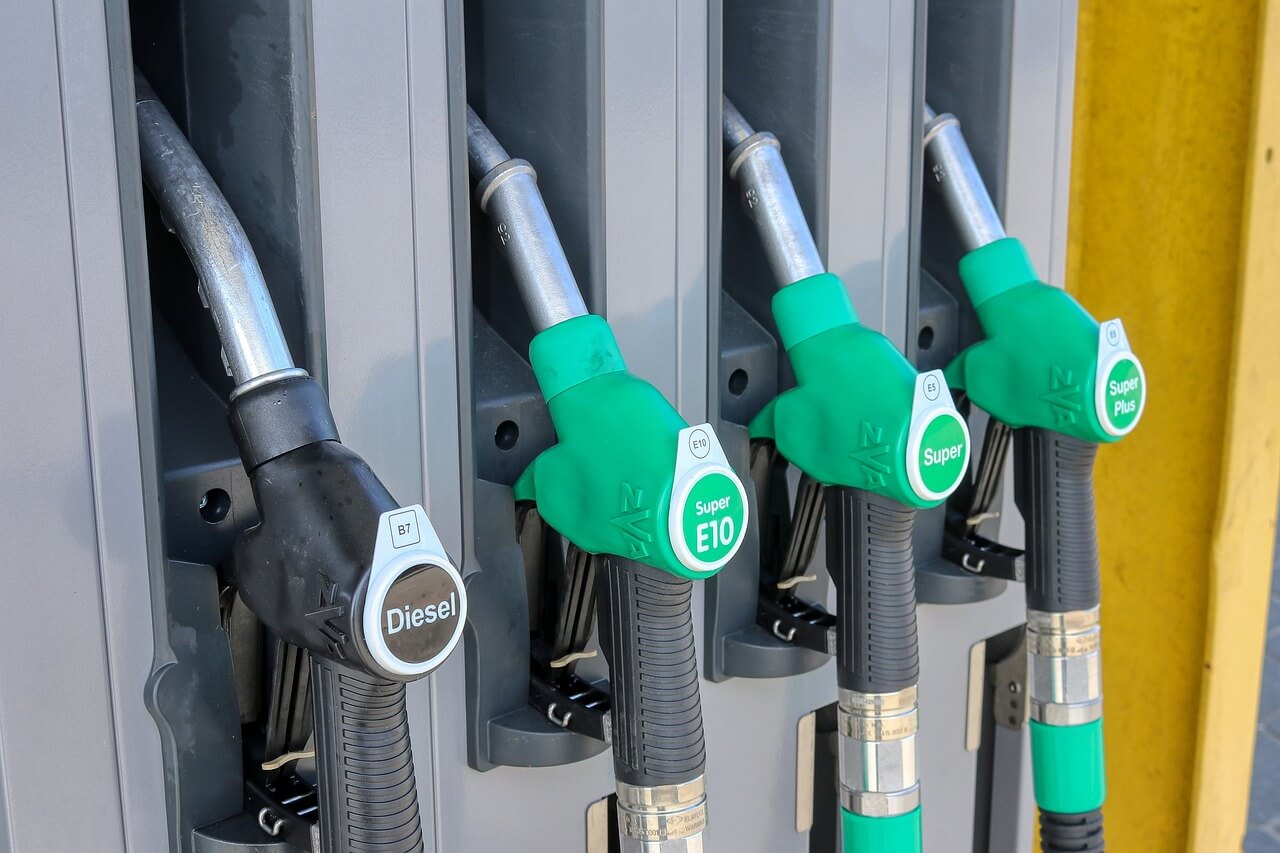Regardless of what field they might be in, any business that wants to stay competitive and agile in today’s market needs to stay ahead of the curve with the latest technological advances. The auto shipping industry is no exception - let’s take a look at some of the ways that next-generation technology is shaking up the world of auto logistics.
Advancements in GPS Tracking
Since it was developed by the US Department of Defense a few decades ago, global positioning system technology has become scalable, with everything from navigation software in smartphones to power grids, personal tracking with fitness apps, communications networks, emergency responders and even tracking wildlife for research.
In the auto logistics business, GPS lets shippers keep track of their trucks and assets in real time, which lets them forecast delays due to traffic or weather or detours and pass that information on to waiting customers. This is a huge help in routing and scheduling as well as connecting with customers and keeping them informed.
Online Booking and Digital Platforms
It wasn’t that long ago when trying to book anything, even if it was just a dentist’s appointment or a repair call for an appliance, meant getting on the phone with a customer service rep or, worse yet, going through an automated phone system and navigating through menu options to hopefully get to what you needed. That’s not the case with auto logistics when it comes to online booking, though.
Online booking isn’t just a matter of taking the customer service rep out of the loop; it means a paperless transaction with no forms that have to be filled out and filed, and a digital document trail of everything that goes on. That means faster and more accurate processing of shipping documents, more open access to information, and of course reduced paper waste for a lighter environmental footprint. Using a Quote Calculator feature like the one on SGT’s website empowers the customer to determine their own shipping solutions depending on the vehicle, the budget, the timeframe and the type of shipping desired. And of course if there are questions that go above and beyond what the Quote Calculator can deliver, there will always be real live human beings to answer them, available 24/7/365.
Automation and AI in Logistics
Automation has gone a long way toward making logistics more efficient and organized. Algorithms can drive all kinds of aspects of the process, including routing and load optimization, enhancing dispatching and reducing the amount of dead time for drivers. Analytics can look at historical data and trends and predict peak times, which means better use of resources and routing that’s more direct and cost-effective.

Automation in Operations
When the rubber meets the road (yes, pun intended), automation and AI-driven programs help enhance the driver’s experience in all kinds of ways (many of which are also at the consumer level for everyday cars and trucks):
- Adaptive cruise control, automatic braking and collision avoidance systems scan the road ahead for trouble and send alerts or act on their own
- Fatigue detection systems monitor driver behavior and alert dispatchers or set safety protocols into action
- AI systems can analyze video from truck cameras to spot aggressive driving, distracted driving, tailgating, etc and use it to deliver insights for driver training or to modify driver behavior
AI-Driven Insights
AI systems digest huge amounts of data to turn out actionable insights such as:
- Plugging in to vehicle data systems to determine preventive maintenance schedules and potential trouble, reducing downtime
- Real-time data about weather, road conditions and traffic reduces fuel use and man-hours by developing efficient routing
- AI matches routes, drivers and loads, making the best use of resources and drivers and reducing empty miles
Enhanced Customer Interaction
All these advances pay off for customers with more efficient scheduling and better ways to keep customers apprised of their vehicle’s progress on the road. Chatbots on auto transport websites are a huge help too, answering basic customer questions before they have to be escalated to a live customer service rep.
Enhanced Safety Measures
Modern trucks now feature data recorders that are similar to the “black box” event recorders on commercial aircraft, along with in-cab cameras that monitor the driver. That info all goes into analyzing patterns like speeding, tailgating, abrupt lane changes and other unsafe habits, which then goes back to fleet managers who can act on it by coaching drivers.
Advanced Surveillance Systems
All that advanced tech is also used to keep a driver’s load safe on the road. Many trucks are rigged with closed-circuit cameras that monitor the load in real time, including breaks or meals when the truck is unattended. This isn’t just for the load and cargo itself - it’s for the entire rig, as theft of commercial vehicles has spiked in recent years.
Enhanced Vehicle Security
Keeping the cargo safe is a top priority for SGT Auto Transport, and our drivers are extensively trained in the best ways to secure vehicles with straps and tie-downs. Alarm systems and cameras can alert drivers to an unsafe condition or any unauthorized access (whether it’s thieves or just curious passersby).
Real-Time Alerts and Notifications
It’s no good to find out about a problem after the fact, and GPS and AI can send a notification on deviations from a route or unexpected stops, helping to ensure a quick response to reduce exposure to risk.
Comprehensive Insurance Coverage
Transparent insurance coverage should include details about liability and protection against theft or damage. It’s the way to ensure peace of mind for the shipper and customer both.
Regular Maintenance and Inspections
These systems all come together to enable fleet managers to come up with precise schedules for preventive maintenance and inspections, heading off any potential problems before they become real problems.
Digital Documentation and Paperless Transactions
Nobody really misses clipboards, paper forms and filing cabinets full of years’ worth of documents. Moving away from actual paperwork and over to digital documents works better for customers and shippers both when it comes to security and convenience; no more looking through file boxes to find paperwork from a transaction.
E-Signatures and Digital Contracts
As part of the transfer to paperless transactions, e-signatures are considered just as valid and binding as someone’s actual handwritten signature on a form.
Instant Document Access
Whole folders of insurance documents, bills of lading, invoices and billing info can all be accessed at any time, and anywhere, making everything much more transparent for customers and shippers both.

Secure Online Payment Systems
The rise of e-commerce has meant a number of different payment systems that are completely bulletproof and safe, and those payment platforms are used by vehicle logistics companies as well.
Automated Documentation Management
With documents all stored online or in cloud systems, everything is easier to get to, for all parties involved. It almost completely negates the chances of paperwork or files being lost or misplaced.
Environmental Benefits
Reducing paper usage means reducing paper waste and lightening a company’s environmental footprint, as well as AI-enhanced routing taking into account fuel usage (both in terms of distance and load/weight optimization).
Customer Communication and Experience
Customers with rare or high-dollar cars might be understandably anxious about them while they’re en route. Things like chat support and real-time text or email updates can help keep them up to speed, and new portal systems can let customers

Green Technology and Sustainability
- Commercial truck manufacturers continue to make strides toward more fuel-efficient trucks, with better engine and drivetrain management systems and improved aerodynamics
- Reduced paper waste and packaging helps businesses be more sustainable
- Some companies and operators are moving toward hybrid or electric transport vehicles, although this technology still has a way to go
- Hybrid and even EV transport trucks are going to become more prevalent in coming years
Challenges and Future Trends
Let’s look down the road (yes, pun intended again) and consider what might be coming in the next decade or so:
Current Challenges
Think about how fast technology is moving ahead for consumer products like TVs or mobile phones, and that’s how fast things are advancing in the logistics world too. It’s important to be able to transition smoothly from one new platform or product to another and make sure they can overlap or at least be compatible, and of course shippers need to be able to stay current with regulatory changes and the differences in the regulatory landscape from one state to another.
Data security is a top priority too, especially in light of the major data breaches that have occurred with major companies in recent years. This is all essential stuff for keeping a logistics company ahead of the curve.
Future Trends
- Autonomous vehicles: things like driver assistance packages (adaptive cruise control, automatic braking, lane management, etc) are in a sense transitional technology that show the way toward fully self-driving vehicles, and driverless Waymo cars have been rolled out in programs in many cities. Many in the logistics industry consider it just a matter of time before commercial trucking goes autonomous or at least semi-autonomous (no, not a pun that time).
- Blockchain: this is a technological advance that can help secure transactions, improve record-keeping and reduce fraud.
Analytics and AI: using predictive analytics, fleet managers can look at seasonal demand, look at patterns of what’s worked and what hasn’t, and use that toward improved load optimization and pricing strategies. It’s all toward the goal of better service for customers, better use of resources and more agility in responding to the market






